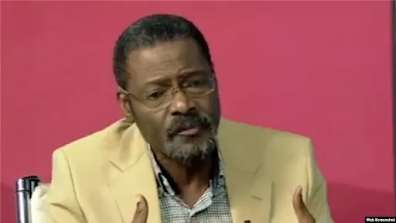Angola will have more than 35 million inhabitants in 2024.
The estimate was made by the director general of the National Statistics Institute (INE), José Calengue, quoted by Jornal de Angola, as part of preparations for the country’s second General Population Census, to be held in 2024, predicting that the result of the data will determine the existence of more than 35 million inhabitants.
The person in charge began by saying that the estimation work, by INE until 2050 foresees for the year 2024 a population of around 35 million 121 thousand and 734 inhabitants.
José Calengue explained that this estimate was based on the growth rate of the Angolan population, which is around 3 percent a year.
“We are even saying that the annual average growth is 922 thousand inhabitants”, reinforced the director general of the National Institute of Statistics, for whom the 2024 Census is in line with international standards, which advise its execution in a period every ten years.
Meanwhile, a multisectoral commission has already been created by the President of the Republic, João Lourenço, to ensure the preparations for the census and is now coordinated by the Minister of State and head of the Military House of the President of the Republic, Francisco Furtado.
The Presidential dispatch, published in Diário da República last December, requires that the said commission must present, by the end of this month of January, the Plan and Schedule of activities referring to the process of the General Population Census.
According to the news, INE should carry out a pilot census this year, according to the news, to test the level of organization, methodologies, procedures and, above all, the possible constraints of the operation, to correct and take precautionary measures. , before the census itself.
For José Calengue, the creation of the multisectoral commission, made up of various ministerial departments of the government apparatus, demonstrates the commitment of the Angolan State to making the 2024 Census workable.
The Angolan government also intends to rely on the United Nations Population Fund (UNFPA), to carry out the second General Population and Housing Census in the country, as well as to create a program on demographic dividend.
UNFPA is the UN’s international development agency that deals with population issues and is responsible for expanding the possibilities for women and young people to lead a healthy sexual and reproductive life. UNFPA works to accelerate universal access to sexual and reproductive health, including voluntary family planning and safe motherhood, and seeks to realize the rights and opportunities of young people.
UNFPA is present in over 150 countries, improving people’s lives as a catalyst for action and an advocate for its issues. Acting through alliances and partnerships with governments, other UN agencies, civil society and the private sector, UNFPA makes a positive difference for billions of people, especially those most in need.
UNFPA also helps countries use population data to anticipate future challenges, provides technical assistance that strengthens and empowers its partners, supports policy formulation and national capacity building, ensuring that reproductive health and women’s rights and young people remain central issues on the development agenda.
The official, who was speaking to Rádio Nacional de Angola, said that this was the missing piece, from the point of view of the Government’s engagement, for carrying out the operation, which he considered complex and expensive.
“Now, we are in a position to increase the speed of our preparation and affirm, in fact, that we are in a position to accelerate and carry out the General Population Census in 2024”, he highlighted.
José Calengue clarified, on the other hand, that the creation of this commission, by the President of the Republic, does not presuppose that the machine for carrying out the Census will only start now. The director general of INE made it known that the conditions for this undertaking had already begun to be created even before the consolidation and publication of the legal instruments aimed at this purpose.
“We have a department of censuses and special surveys, which has already been working on the preparation of the main instruments that should be used to carry out this major operation”, explained the national head of the Statistics Institute.
The first General Population and Housing Census in the history of Independent Angola was carried out in 2014 and determined the existence of a total of 25,789,024 inhabitants in the country, of which 6,945,386 were residing in the province of Luanda. In terms of gender, women made up the majority, as they were, of course, 13 million 289 thousand 983 against 12 million 499 thousand 041 men. Only in Luanda, the most numerous province in the country, there were 67 men for every 100 women.



